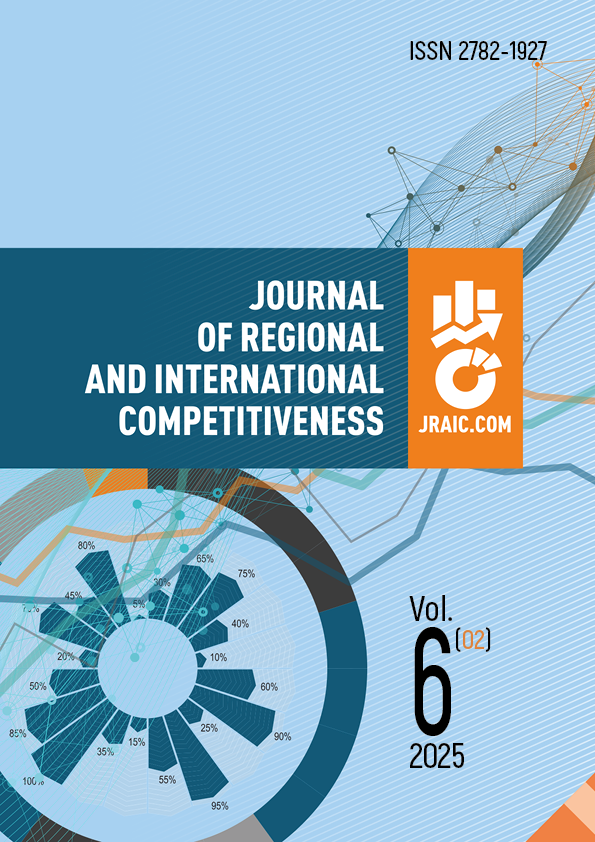INSTITUTE FOR ADVANCED TRAINING OF EXECUTIVES AND SPECIALISTS
Federal State University of Education
Moscow, Moscow, Russian Federation
Moscow, Moscow, Russian Federation
VAK Russia 5.2.6
Nowadays, the intensification of the negative dynamics of climate change on the planet continues. This trend indicates a clear lag in adaptation measures to global climate change. However, many international efforts in this regard (for example, the Paris Climate Agreement) are primarily declarative in nature. In this regard, the adoption of the Climate Doctrine of the Russian Federation in 2023 was a very important in terms of the problems of adaptation to climate change on 1/7th of the Earth. Nevertheless, the macroeconomic and microeconomic advantages of climate adaptation determine the long-term national competitiveness. The purpose of this study is to develop a system of criteria for assessing the effectiveness of climate adaptation in the Russian Federation as a basis for the country's competitiveness in the Eurasian and global space. The novelty of the obtained results based on the requirements of the Climate Doctrine of the Russian Federation, a new approach to assessing the effectiveness of adaptation of the national economy to climate change, designed to ensure as a basis for country competitiveness in the Eurasian and global space. The practical significance of the results obtained concern with the possibility of their use in the development of approaches to assessing the effectiveness of national economy adaptation to climate change in accordance with the requirements of the Climate Doctrine of the Russian Federation to ensure country competitiveness.
criteria system; efficiency assessment; climate adaptation; Russian Federation; country competitiveness; Eurasian space
1. Klaptsov, V. M. (2011). Measures for adaptation to climate change. Rossijskij institut strategicheskih issledovanij. Retrieved from https://riss.ru/analitica/mery-po-adaptatsii-k-izmeneniyam-klimata (accessed: 10.01.2025) (in Russian).
2. Nikolaev, N. P. (2022). On the issue of practical adaptation to climate change in the context of Russia's participation in the global climate agenda. Nauchnye trudy Vol'nogo ekonomicheskogo obshchestva Rossii, (236), 427–446 (in Russian). DOI: https://doi.org/10.38197/2072-2060-2022-236-4-427-446; EDN: https://elibrary.ru/SPPZTP
3. Porfiriev, B. N., Terentyev, N. E., & Zinchenko, Yu. V. (2023). Planning for adaptation to climate change: World experience and opportunities for sustainable development in Russia. Voprosy prognozirovaniya, 197(2), 154–168 (in Russian). DOI: https://doi.org/10.1134/S1075700723020119
4. Serebritskiy, I. A. (2020). International experience in climate change adaptation management. Nauka o klimate. Retrieved from https://climatescience.ru/articles/5e9ef5ddc810400019470e50 (accessed: 10.01.2025) (in Russian).
5. Shelomentsev, A. G., & Goncharova, K. S. (2022). Problems of socio-economic adaptation to global climate change: Approaches and solutions. Prodovol'stvennaya politika i bezopasnost', 9(4), 377–402 (in Russian).
6. Tarasova, O. S. (2023). To the issue of adaptation of national economy branches to climatic changes. Uspekhi sovremennogo estestvoznaniya, (10), 64–70 (in Russian). DOI: https://doi.org/10.17513/use.38115; EDN: https://elibrary.ru/ZYYYKE
7. Tebekin, A. V., & Kanter, D. A. (2023). Development of an algorithm for processing climate system data. Zhurnal tekhnicheskih issledovanij, 9(3), 21–30 (in Russian).
8. Tebekin, A. V., & Lomakin, O. E. (2022). Effectiveness criteria for national economy adaptation measures. Teoreticheskaya ekonomika, 95(11), 40–55 Retrieved from https://ystu.editorum.ru/ru/nauka/issue/4965/view (in Russian).
9. Tebekin, A. V., & Orlyuk, A. A. (2023). Impact of climate change on forest science in Russia. Zhurnal tekhnicheskih issledovanij, 8(2), 49–59 (in Russian).
10. Wurman, P. R., D’Andrea, R., & Mountz, M. (2008). Coordinating hundreds of cooperative, autonomous vehicles in warehouses. AI Magazine, 29(1), 9–20.




















